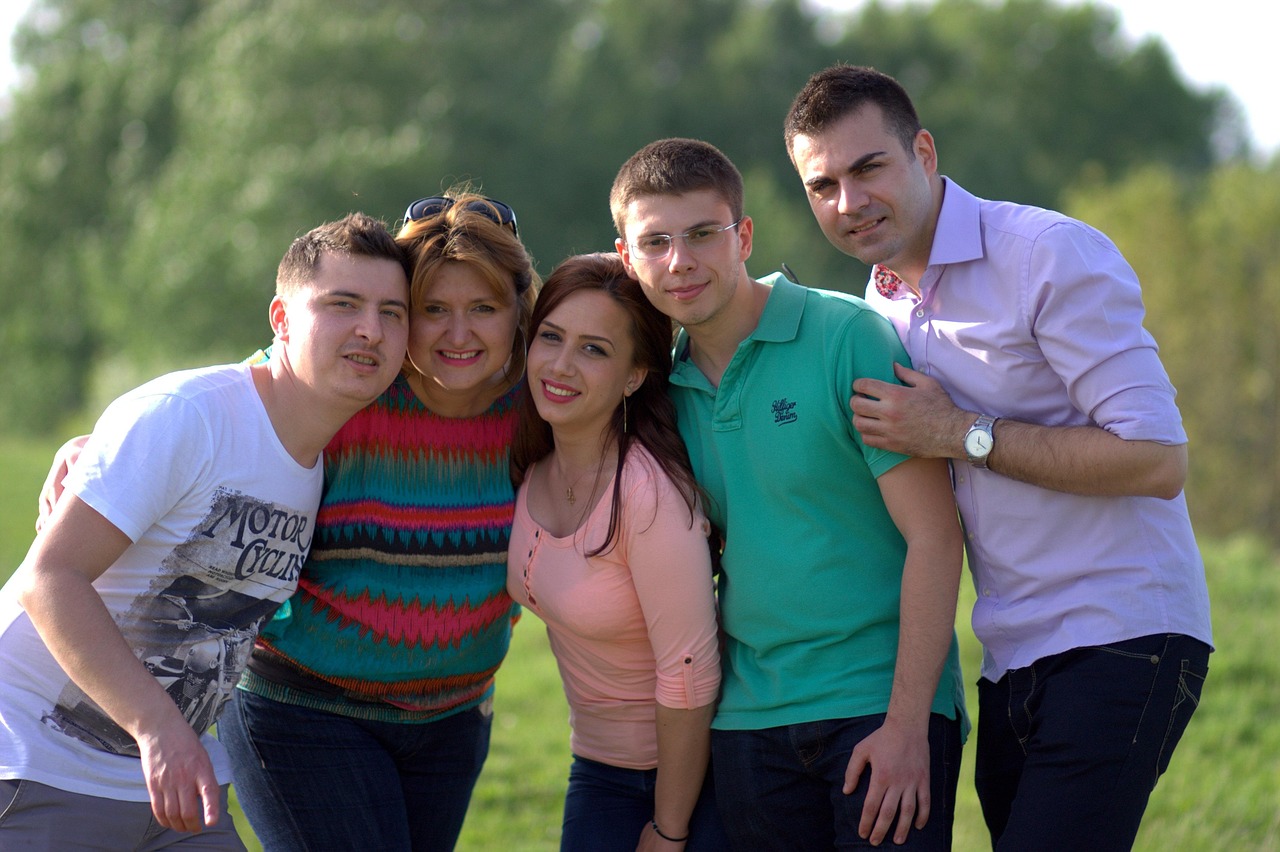Human beings are inherently social creatures, wired for connection and belonging. This deep-seated need drives us to form bonds, build relationships, and thrive within communities. Understanding the science behind social bonding, its importance for our well-being, and how to cultivate stronger connections can significantly improve our lives, both personally and professionally. This guide delves into the intricacies of social bonding, exploring its benefits, challenges, and strategies for nurturing meaningful relationships.
Understanding Social Bonding
Social bonding refers to the process of forming and maintaining meaningful relationships with others. It’s the glue that holds societies together and the foundation of individual well-being. These bonds can range from casual acquaintances to deep, intimate connections with family, friends, and romantic partners. Social bonding involves feelings of trust, empathy, and mutual support, all of which contribute to our sense of belonging and security.
Biological Basis of Social Bonding
- Oxytocin’s Role: Often called the “love hormone,” oxytocin plays a crucial role in social bonding. It’s released during physical contact (hugging, holding hands), social interactions, and acts of kindness, promoting feelings of trust and connection.
- Mirror Neurons: These specialized brain cells allow us to understand and empathize with others by mirroring their actions and emotions. This mirroring facilitates a deeper understanding and connection with those around us.
- Dopamine and Reward: Social interactions trigger the release of dopamine, a neurotransmitter associated with pleasure and reward. This positive reinforcement encourages us to seek out social connections.
Types of Social Bonds
- Familial Bonds: These are often the strongest and most enduring bonds, formed through shared history, genetic connections, and unconditional love (ideally).
- Friendship Bonds: Based on mutual interests, shared values, and reciprocal support, friendships provide companionship, emotional support, and a sense of belonging.
- Romantic Bonds: Characterized by intimacy, passion, and commitment, romantic relationships offer a unique level of connection and support.
- Community Bonds: These bonds connect us to larger groups based on shared interests, goals, or identities, fostering a sense of collective belonging. Examples include sports teams, volunteer organizations, and religious groups.
- Workplace Bonds: Relationships formed with colleagues can contribute to job satisfaction, teamwork, and a more positive work environment.
The Importance of Social Bonding for Well-being
Social connection is not just a nice-to-have; it’s a fundamental human need, critical for both physical and mental health. Strong social bonds provide numerous benefits, contributing to a happier, healthier, and more fulfilling life.
Mental Health Benefits
- Reduced Stress and Anxiety: Social support acts as a buffer against stress. Talking to a trusted friend or family member can help alleviate anxiety and provide perspective.
- Lower Risk of Depression: Loneliness and social isolation are major risk factors for depression. Strong social bonds provide a sense of belonging and purpose, protecting against feelings of hopelessness and despair.
- Increased Self-Esteem and Confidence: Feeling valued and accepted by others boosts self-esteem and confidence, enabling us to take risks and pursue our goals.
Physical Health Benefits
- Improved Immune Function: Studies have shown that people with strong social connections have stronger immune systems and are less susceptible to illness.
- Lower Blood Pressure: Social support can help regulate blood pressure, reducing the risk of heart disease and stroke.
- Increased Longevity: Research consistently demonstrates that people with strong social ties live longer, healthier lives.
Practical Examples:
- Joining a club or group: Participating in activities with like-minded individuals can foster new friendships and a sense of belonging.
- Volunteering: Helping others not only benefits the community but also provides a sense of purpose and connection.
- Regularly connecting with family and friends: Making time for phone calls, video chats, or in-person visits strengthens existing bonds and combats loneliness.
Challenges to Social Bonding in Modern Life
While the need for social connection remains constant, modern life presents numerous challenges to forming and maintaining meaningful relationships. Recognizing these obstacles is the first step towards overcoming them.
Technology and Social Media
- The Illusion of Connection: While social media can facilitate communication, it can also create a superficial sense of connection that lacks depth and authenticity. Spending excessive time online can detract from real-life interactions.
- Social Comparison: The curated and often unrealistic portrayals of others on social media can lead to feelings of inadequacy and social comparison, hindering genuine connection.
- Cyberbullying and Online Harassment: Negative online experiences can damage self-esteem and create fear of social interaction.
Geographic Mobility and Time Constraints
- Relocation and Transience: Frequent moves can disrupt existing social networks and make it difficult to establish new ones.
- Busy Schedules: Demanding jobs, family responsibilities, and other commitments can leave little time for nurturing relationships.
Social Anxiety and Fear of Rejection
- Social Anxiety Disorder: This condition can make social interactions extremely difficult and lead to avoidance of social situations.
- Fear of Rejection: Past negative experiences can create a fear of rejection, making it difficult to initiate and maintain relationships.
Strategies for Building and Strengthening Social Bonds
Despite the challenges, it’s possible to cultivate strong social connections. The key is to be proactive, intentional, and genuine in your efforts.
Cultivating Meaningful Conversations
- Active Listening: Pay attention to what others are saying, both verbally and nonverbally. Ask clarifying questions and show genuine interest.
- Sharing Personal Experiences: Vulnerability fosters connection. Share your thoughts, feelings, and experiences (appropriately) to create a deeper sense of intimacy.
- Finding Common Ground: Look for shared interests and values to build rapport and establish a foundation for connection.
Prioritizing Quality Time
- Scheduling Regular Outings: Make time for activities with friends and family, even if it’s just a weekly coffee date or a monthly dinner.
- Being Present: When you’re with others, put away your phone and give them your undivided attention.
- Creating Shared Experiences: Participate in activities that you both enjoy, creating lasting memories and strengthening your bond.
Practicing Empathy and Compassion
- Perspective-Taking: Try to see things from the other person’s point of view.
- Offering Support: Be there for your friends and family during difficult times, offering a listening ear, practical assistance, or words of encouragement.
- Expressing Appreciation: Show your gratitude for the people in your life, letting them know how much you value their presence.
Practical Tips for Connecting
- Join a group related to your hobbies: Whether it’s a book club, a hiking group, or a sports team, shared interests can be a great way to meet like-minded people.
- Take a class: Learning a new skill can provide opportunities to connect with others who share your interests.
- Volunteer: Volunteering is a great way to give back to your community and meet new people who share your values.
- Reconnect with old friends: Reach out to friends you’ve lost touch with and rekindle those relationships.
- Be open to meeting new people: Strike up conversations with strangers, attend social events, and put yourself out there.
Conclusion
Social bonding is a fundamental aspect of the human experience, vital for our physical, mental, and emotional well-being. While modern life presents challenges to forming and maintaining meaningful relationships, by understanding the importance of social connection and actively cultivating strong bonds, we can create a more fulfilling and connected life. Prioritize quality time, practice empathy, and be intentional in your efforts to build and strengthen your social network. The investment you make in your relationships will pay dividends in terms of happiness, health, and overall well-being. Remember, cultivating strong social bonds is not just about having more friends; it’s about building a support system that will enrich your life and help you navigate the challenges that come your way.




